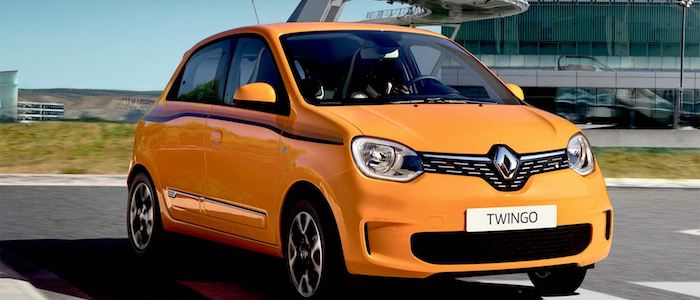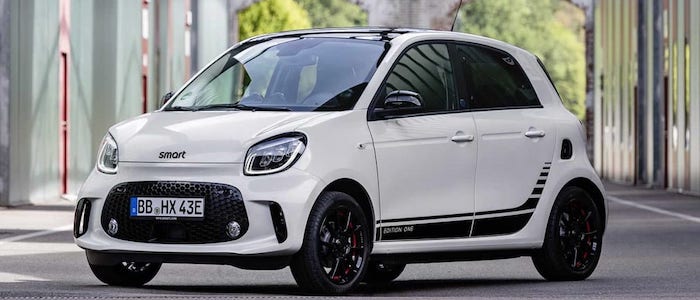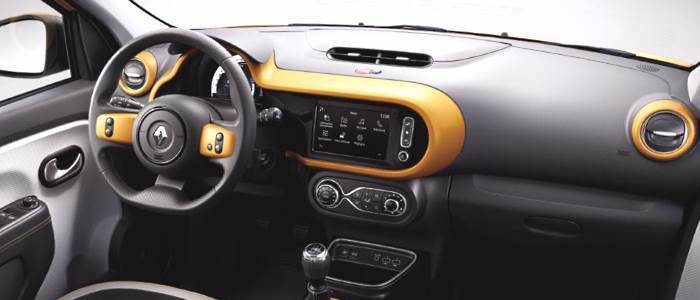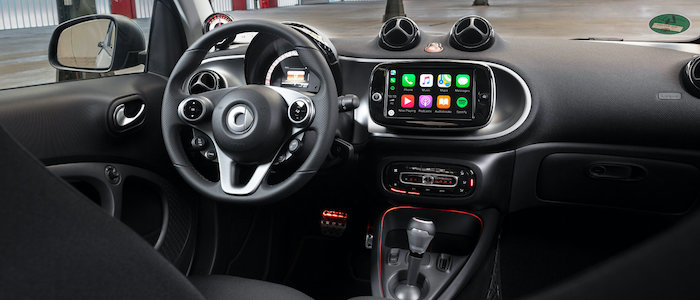Compare two cars
Compare any two cars and get our Virtual Adviser™ opinion
Dimensons & Outlines
Check vehicle history
Engine
Performance (manual gearbox)
Performance (automatic gearbox)
Expenses
Virtual Adviser's™ opinion
We are here considering two somewhat similar cars, but we can't deny some of the obvious differences. For a start, they are not even classified under the same segment, with the Renault being a micro car and the Smart representing city car vehicle class. Both the engines are Renault-engineered . The first one has a PMSM Electric unit in formation 0 / 1 with 82hp unit, while the other one gets its power and torque from a PMSM Electric unit in formation 0 / 1 with 82hp one.
SafetyThe first thing to look into here would be the results from European New Car Assessment Programme (Euro NCAP) tests performed on the two cars. Good thing is that both vehicles got tested, with the same number of safety stars gained in the process. Still, apart from the official crash test results there are other things we need to be aware of. The second vehicle is a city car and that gives it a marginal advantage over the micro car competitor, at least that's what statistics show. On the other hand, taking kerb weight as an important factor into account, the French car offers a marginal difference of 7% more metal.
ReliabilityReliability is not the best thing to consider on the make level, but it is worth mentioning that both brands display similar results in faults and breakdowns, when all the models are taken into account. These are the official statistics, while our visitors describe reliability of Renault with an average rating of 4.2, and models under the Smart badge with 4.3 out of 5. Unfortunatelly, I don't have enough insight that would allow me to comment in more details on the specific models level. That apart, owners of different cars powered by the same engine as the French car rank it on average as 3.0 out of 5, exactly the same as the other one.
Performance & Fuel economySmart is a bit more agile, reaching 100km/h in 0.2 seconds less than its competitor. Still, it lacks the power to win the top speed competition, topping at 130 kilometers per hour, 5km/h less than the other car. When it comes to fuel economy things look pretty much the same for both cars, especially if you take into account all the free charging points provided by the manufacturer and/or the local government's environmental programs. One of the essential things to consider when it comes to this type of vehicles would be range, although here it's more or less the same, orbiting around 160 kilometers on a single charge.
Verdict
Smart appears just a bit more reliable, although the difference is truly marginal. The most important thing when deciding between any two vehicles should always be safety, both passive and active. In this case though, it seems that both cars show similar levels of passenger protection all together, so that won't break a tie. When it comes to performance, both vehicles provide similar experience, so I wouldn't point any of them out. The German car offers somewhat better range. At the end, as much as I'd like to give you a winner here, it's simply a pure tie if you ask me. Anyway, that's the most objective conclusion I could've came up with and it's based solely on the information found on this website. Aspects such as design, practicality, brand value and driving experience are there for you to measure them out. In case you have two minutes to spare I invite you to define your needs, desires and budget and see which car would be chosen by the virtual adviser™, among thousands of similar, yet so different vehicles.































